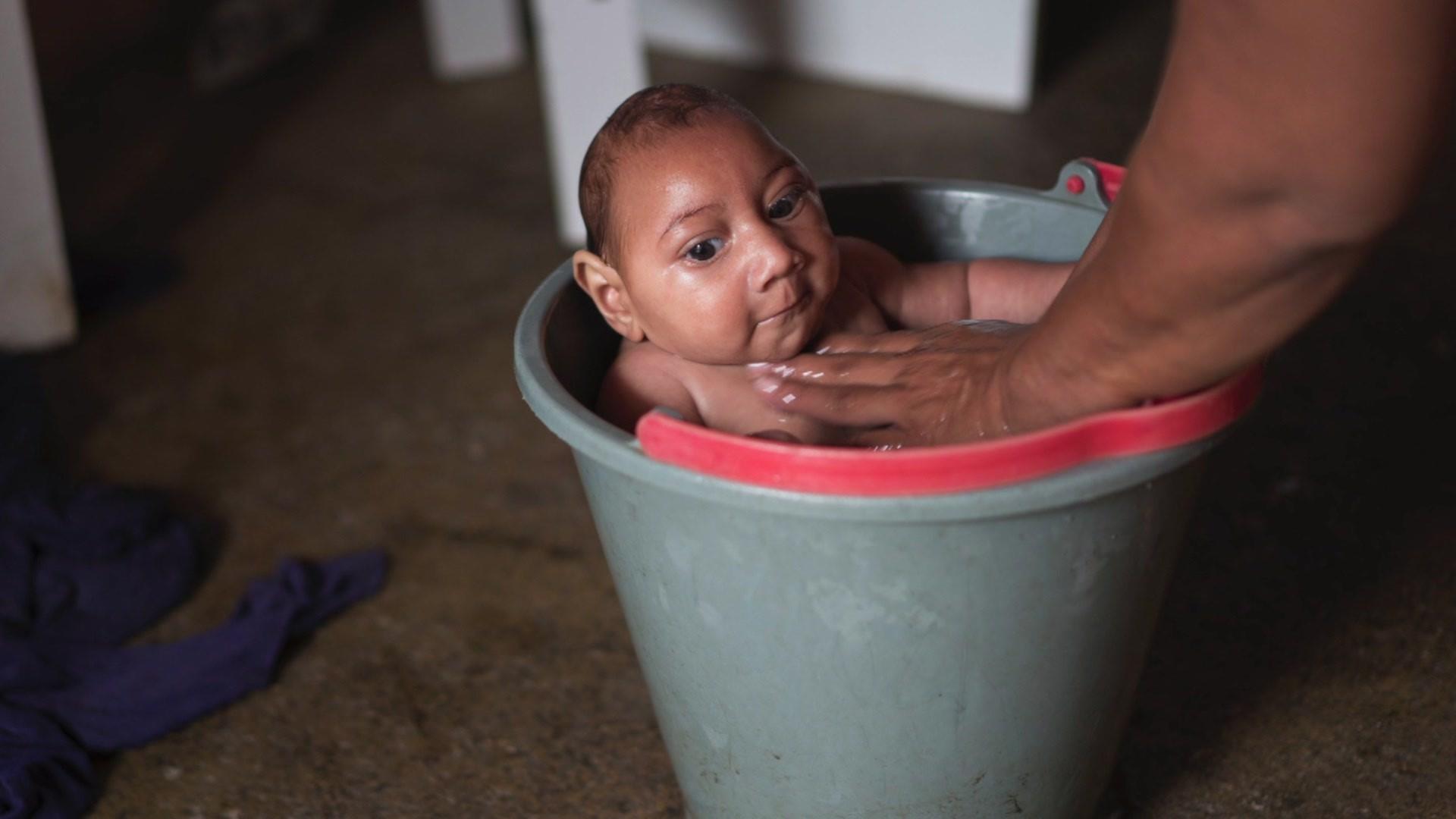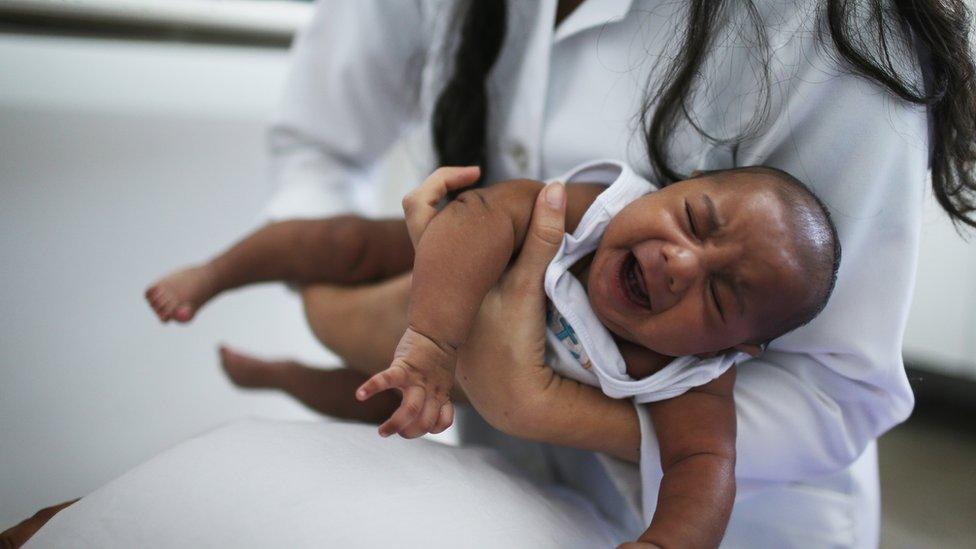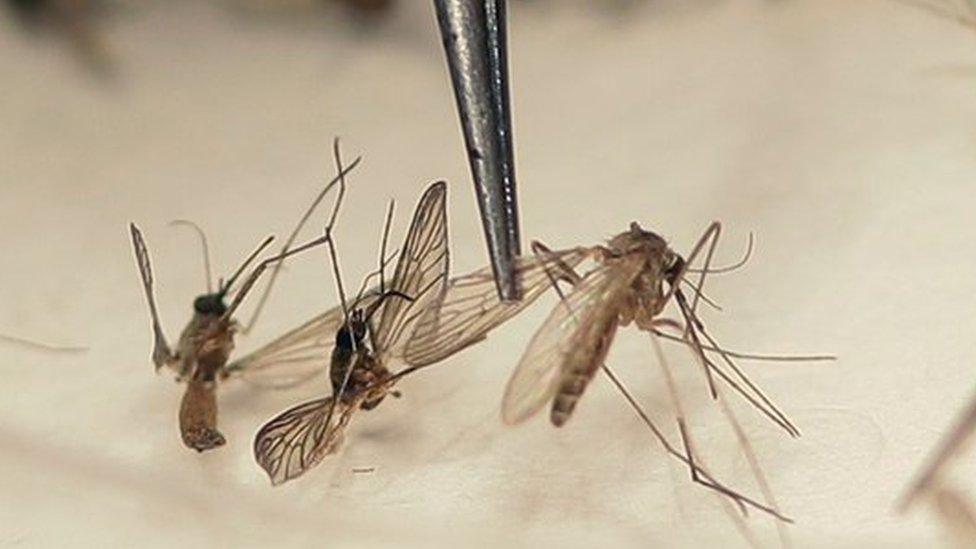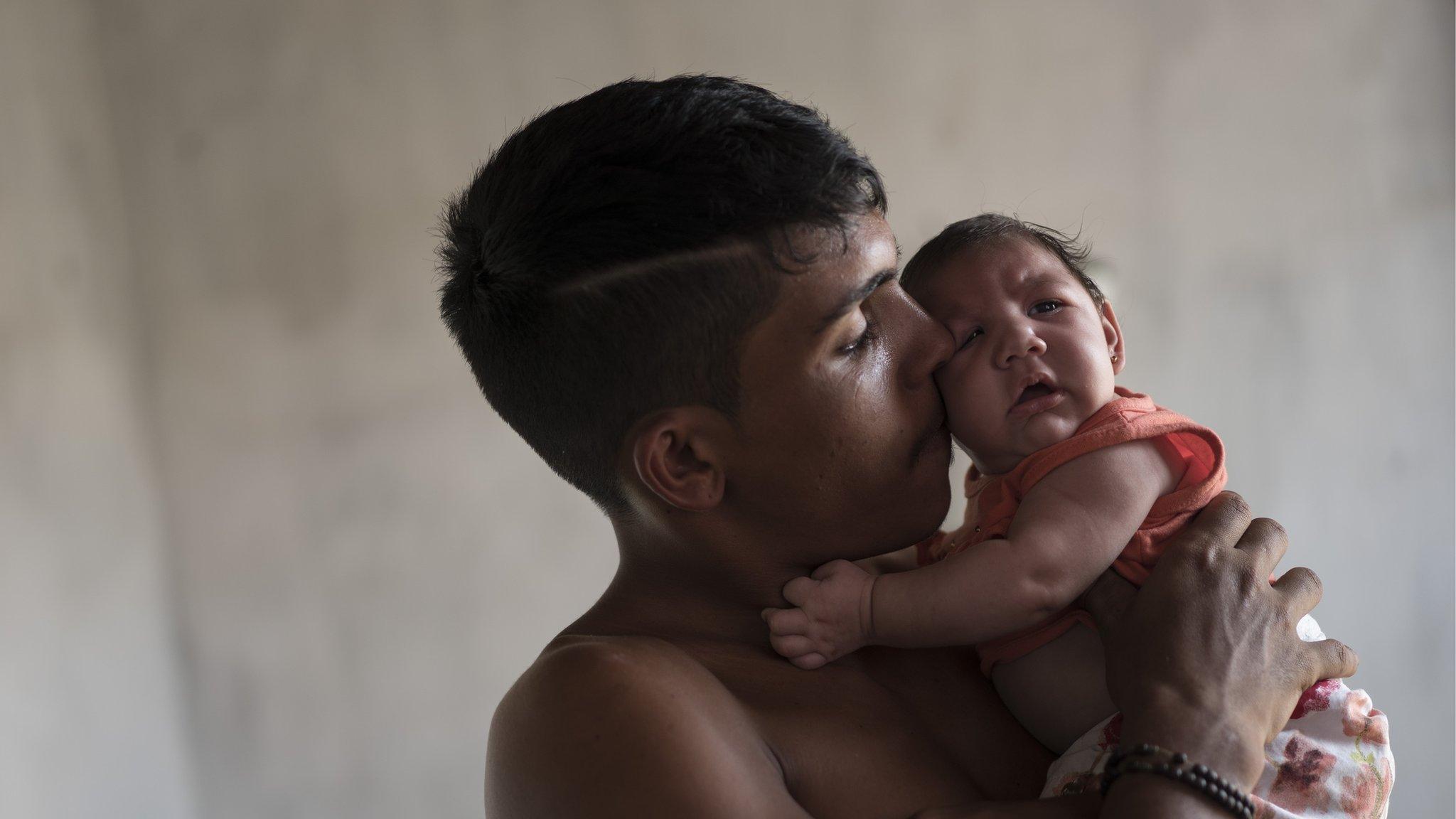Zika virus: US investigating 14 possible sexually-transmitted cases
- Published
The BBC's Camilla Costa went to meet Wesley and his mother.
US health officials are investigating 14 new reports of possible sexual transmission of the Zika virus.
The cases include several involving pregnant women, the CDC said.
The US Centers for Disease Control (CDC) made the revelation while publishing new guidance on sexual transmission of the virus.
The guidance has been issued in response to confirmation of the first case of Zika in a non-traveller in the continental United States.
That case was linked to sexual contact with an infected partner.
The CDC is advising all men who have travelled to an area active with the Zika virus to use condoms or abstain from sex for the length of the pregnancy.
There is no evidence yet that women can transmit Zika virus to their sex partners, but more research is needed to understand this issue, the health body said.

Scientists last week said a study involving pregnant women in Brazil "strengthened" the theory that Zika is linked to the microcephaly birth defects in babies.
The defect can cause babies to be born with abnormally small heads and affect their cognitive development.
The research confirmed the presence of Zika virus in the amniotic fluid of two women who had had Zika-like symptoms during their pregnancies.
Brazilian experts say this suggests the virus can infect the foetus.
The primary method of infection of the virus remains mosquito bites. Experts say women who are pregnant should try to avoid the insects.
On Tuesday, Margaret Chan, the head of the World Health Organization, said the world faced "a long journey" to defeat Zika.
Speaking in Brazil, where most cases have been recorded, she said it was a "very tricky, very tenacious, very difficult" virus.
- Published24 February 2016

- Published18 February 2016

- Published12 February 2016

- Published16 February 2016

- Published16 February 2016

- Published31 August 2016
